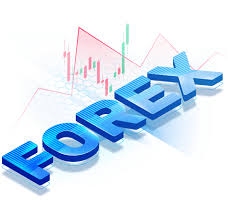The Ultimate Guide to Forex Trading Brokers 1662676782

The Ultimate Guide to Forex Trading Brokers
In the vast and dynamic world of Forex trading, selecting the right broker can significantly impact your trading success. With numerous choices available, it is essential to know what factors to consider when choosing a broker. This article will explore the fundamental aspects of trading brokers, their role, and how to navigate the Forex marketplace effectively. For further guidance, you can visit trading brokers forex https://tradingplatform-hk.com/.
Understanding Forex Trading Brokers
Forex brokers act as intermediaries between traders and the currency market. They facilitate the buying and selling of currency pairs, provide trading platforms, and sometimes offer educational resources and analytical tools. Choosing the right broker is crucial as they may differ in terms of fees, spreads, leverage, and platforms available.
Types of Forex Brokers
Forex brokers can be categorized into different types, each with unique characteristics, advantages, and drawbacks:
- Market Makers: These brokers create a market for traders, offering fixed spreads and often placing trades against their clients. Market makers can provide liquidity, but their interests might not always align with those of their clients.
- ECN Brokers: An Electronic Communication Network (ECN) broker connects traders directly with the interbank market, offering variable spreads and faster order execution. They charge a commission on trades but provide more transparency.
- STP Brokers: Straight Through Processing (STP) brokers execute trades automatically in the market without any intervention. They often mix market maker and ECN features but generally provide tighter spreads.
- DMA Brokers: Direct Market Access brokers give traders the ability to place their orders directly in the market with minimal intermediary involvement. This type of broker is often preferred by seasoned traders who require more control over their orders.
Key Factors to Consider When Choosing a Forex Broker
1. Regulation
One of the first factors to consider is whether a broker is regulated by a reputable financial authority. Regulation helps ensure that the broker adheres to standards for protecting client funds and providing fair trading conditions. Look for brokers regulated by bodies such as the FCA (UK), ASIC (Australia), or CySEC (Cyprus).
2. Trading Costs
Evaluate the fees associated with trading, including spreads, commissions, and overnight fees. Some brokers might offer low spreads but charge high commissions, while others might have the opposite structure. Understanding the total trading cost can help you to strategize your trades effectively.

3. Trading Platforms
The trading platform is a critical part of your trading experience. A good platform should be user-friendly, stable, and equipped with the necessary tools for analysis and trading. Popular platforms include MetaTrader 4 (MT4), MetaTrader 5 (MT5), and cTrader.
4. Leverage and Margin
Leverage allows you to control larger positions with a smaller amount of capital. While high leverage can magnify profits, it also increases the risk of significant losses. Ensure you understand the broker’s leverage offerings and align them with your risk tolerance.
5. Customer Support
Reliable customer support can make a significant difference, especially if you encounter issues while trading. Look for brokers that offer 24/7 customer support through multiple channels, such as live chat, email, and phone.
How to Start Trading Forex
- Open a Trading Account: Once you’ve chosen a broker, you will need to open a trading account. This typically requires you to provide identification and other required documents.
- Fund Your Account: After your account is set up, you can deposit funds using various methods available like bank transfers, credit cards, or e-wallets.
- Set Your Trading Strategy: Define a trading strategy based on your goals and risk tolerance. This could involve day trading, swing trading, or long-term investment.
- Start Trading: Begin trading by executing your trades according to your strategy. Keep track of your performance and adjust your approaches as necessary.
- Continuous Learning: The Forex market is always evolving. Engaging in ongoing education and market analysis can help you refine your strategies and improve your trading performance.
Common Trading Mistakes to Avoid
Avoiding common pitfalls can help enhance your trading experience and success rate. Here are a few mistakes to steer clear of:
- Overleveraging: Using excessive leverage can lead to significant losses, even if market conditions are favorable.
- Lack of a Trading Plan: Trading without a clear plan sets you up for emotional decision-making, which can hinder your success.
- Ignoring Risk Management: Established risk management strategies protect your capital and minimize losses.
- Chasing Losses: Attempting to recover losses by making impulsive trades can lead to deeper financial problems.
- Neglecting Research: Failing to stay informed about market trends and economic indicators can hinder your trading decisions.
Conclusion
Forex trading can be a rewarding endeavor with the right knowledge and tools. Choosing the right broker is foundational to a thriving trading experience. By understanding the types of brokers, key evaluation factors, and common mistakes to avoid, you can navigate the Forex landscape more effectively. Remember that successful trading involves ongoing education and the ability to adapt to changing market conditions.

